Grow Your Church
Without Burning Out
Join over 5,000 church leaders who use Simple Systems to build, grow, and sustain impactful ministries.
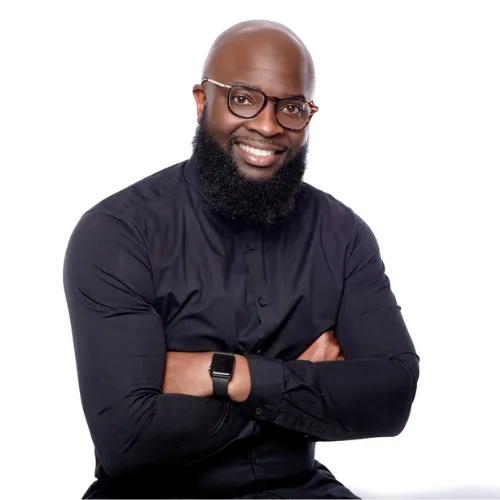

Discover Your Church Growth Potential
Take our 2-minute assessment to get a personalized roadmap for growing your church without burning out

Identify Growth Barriers
Discover what's holding your church back from its next level

Get Custom Recommendations
Receive tailored strategies based on your specific situation

Create Your Action Plan
Get a step-by-step roadmap to implement immediately
✓ Takes less than 2 minutes ✓ Completely free ✓ Instant results
This Week's Strategy Brief
Get the latest church growth insights and actionable strategies
Apostolic Insight with Henry Tolbert
Step-by-step frameworks to help you lead into a new future.
100,000+ Views Across All Platforms | 96% Likes This Video
This Week's Strategy Brief
Get the latest church growth insights and actionable strategies
Apostolic Insight with Henry Tolbert
Step-by-step frameworks to help you lead into a new future.
100,000+ Views Across All Platforms | 96% Likes This Video
Choose Your Growth Path
Whether you need systems or coaching, we have the perfect solution for your church
Church Systems in a Box
One Payment of $997
Perfect for Pastors Who Need Quick Wins on a Tight Budget
⚙️ All Systems Templates
⚙️ Church Job Descriptions and SOPs
⚙️ Monthly Coaching Call Access
⚙️ Lifetime Access
Free Bonus: ⚙️ Website Builder + CRM
Church Growth Accelerator
$7500/yr
or Flexible Payment Options
For Pastors Serious About Breakthrough and Rapid Growth
⚙️ 90-Day Intensive Program Designed to Install the 5 Core Church Systems
⚙️ Weekly Strategy Calls with Henry and the Accelerator Cohort
⚙️ Done-For-You Automation Setup and Systems Implementation
⚙️ Custom 90-Day Growth Plan and Accountability Tracker
⚙️ Leadership Development Toolkit for Staff and Volunteers
⚙️ Priority Access to All Templates, SOPs, and Funnels
⚙️ Access to “Accelerator Clinics” for Hands-On Problem Solving
⚙️ Personalized Strategy Review Optimization
⚙️ Exclusive Voxer Community of Growth-Minded Pastors with Instsnt Access to Henry
Free Bonus:
⚙️ Full Church Hub Setup (CRM, Website, Funnels, Emails, Text Automations)
⚙️ 12-Month Access to the Systems Library and All Future Updates
Why It Works
Built by pastors. Powered by systems. Proven to grow churches of every size.

Pastor-Built
Created by pastors who understand the unique challenges of church leadership

System-Powered
Automated workflows that free you to focus on ministry, not administration

Proven Results
Trusted by 100+ churches across the U.S. with measurable growth outcomes
"Simple Systems transformed our church. We went from a disengaged group to a healthy team. My vision has opened so much because I have room to think."
Free Resources
Get started with these proven tools and strategies - completely free
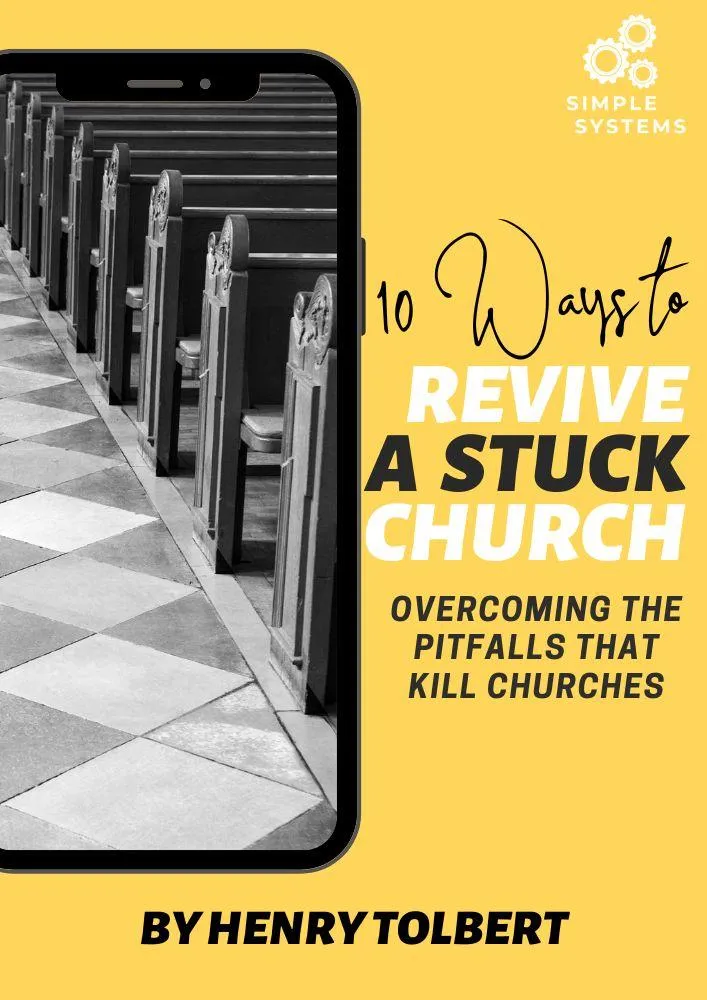
10 Ways to Revive a Stuck Church: Overcoming the Past to Reach the Future
Free eBook

The Church Growth Blueprint: Transforming Lives One Invitation at a Time
Free eBook
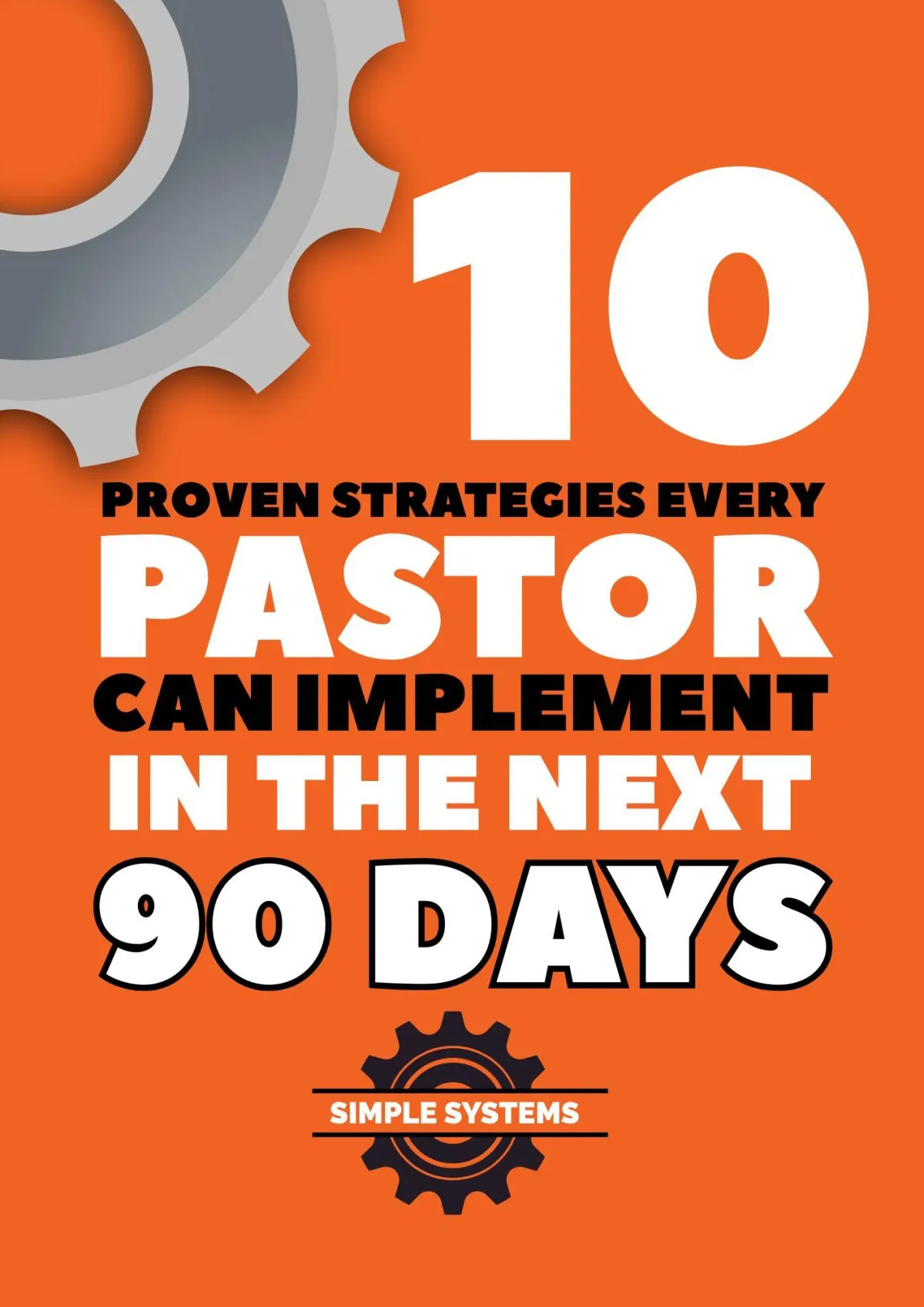
10 Proven Strategies Every Pastor Can Implement in the Next 90 Days!
Free eBook
Want to Get a Win in 1 Hour?
Quick, actionable courses that deliver immediate results for your ministry
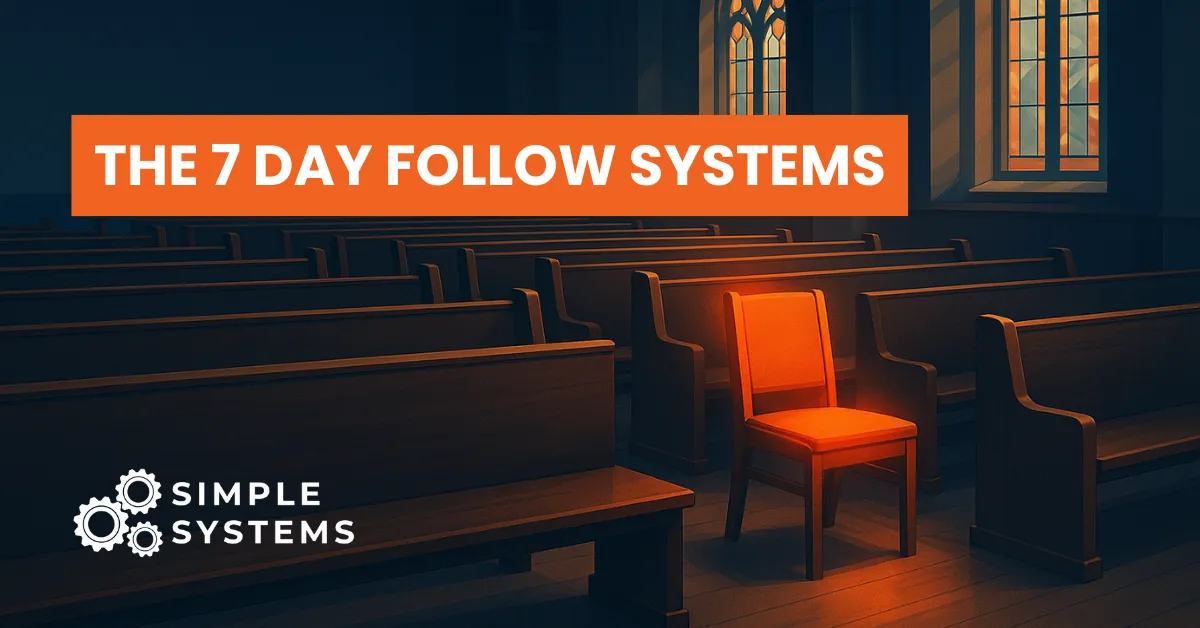
The 7- Day Guest Followup System
$19
45 minutes
Turn first-time visitors into committed members with our proven follow-up system.
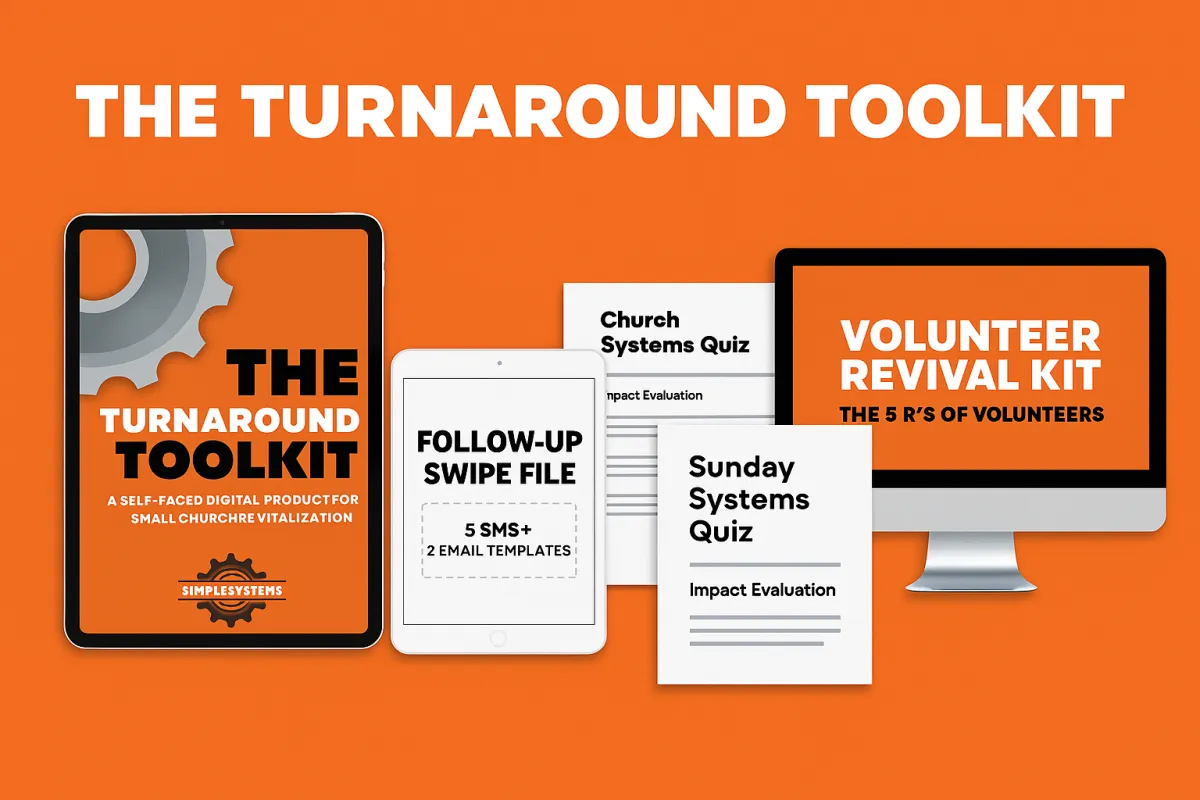
The Turnaround Toolkit Bundle
$47
90 minutes
If your church feels stuck, here's the systems-based toolkit pastors are quietly using to turn things around—fast.
Watch & Learn
Free training videos to help you grow your church with proven systems
How to Break the 100 Barrier
Why Your Church Isn't Growing (And How to Fix It)
The Death of the Small Black Church?
7 Shifts That Will Shake the Black Church
The Three Walls That You Must Overcome to Walk in Victory
Apostolic Insight | What is a Healthy Church in 2025
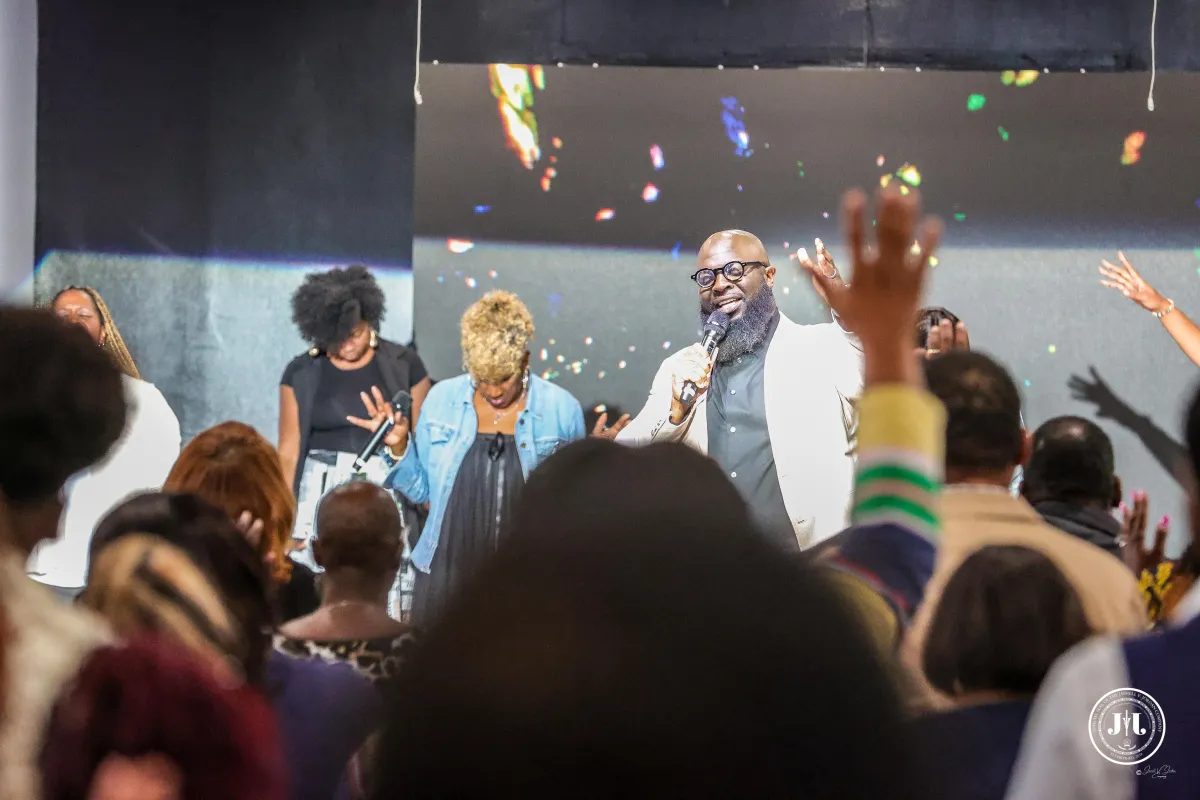
From Denominations to Relational Networks: Why Your Next Covering Will Feel More Like Family
From Denominations to Relational Networks: Why Your Next Covering Will Feel More Like Family
Denominations are dying.
Not overnight. Not all at once.
But the version of “denominational life” many of us grew up in is fading.
You can feel it:
You’re sending money up the chain… and not feeling much come back down.
You have a “covering” on paper… but nobody calls until it’s conference time.
You’re trying to navigate AI, social media, and post-COVID church…
while the main conversation is still about “how we’ve always done it.”
Meanwhile, you’re tired of feeling alone.
You don’t want another title. You want a tribe.
I believe that’s exactly the shift we’re in:
from denominations built on bureaucracy
to relational networks built on covenant.
Let’s talk about it.
The Problem: When the Old Wineskin Stops Stretching
Denominations have done really good in the kingdom. Many of us are their fruit.
But for a lot of pastors under 300, here’s what you’re seeing now:
1. Yesterday’s structure for today’s problems
Many denominational systems were built for a different era:
More people.
Slower change.
Less digital, more analog.
As churches shrank, the complexity stayed the same:
Layers between the local church and national leadership
Committees for committees
Slow responses to fast-changing realities
What used to protect the mission now often slows it down.
2. Red tape that kills momentum
We’ve all watched it:
Clear issues.
Public battles.
Endless process.
Decisions that should take weeks are taking years.
As a local pastor, you can’t wait three years to fix what’s breaking this month.
3. Financial obligations with little visible return
Most small churches are already stretched.
Yet many pastors are still hearing:
“Send your associational giving.”
“Send your state giving.”
“Send your national giving.”
“Oh, and bring a delegation to the convention. Get a hotel, airfare, food…”
But when you ask, “What do we actually get back at the local level?”
The answer often isn’t clear.
It feels like a subscription you forgot you signed up for.
4. Growing disconnect from younger leaders
Most of the churches in the Black church space are smaller than 70.
Most of the pastors reaching younger generations are:
Bivocational
Navigating social media and streaming
Trying to understand AI, online giving, and content
If gathering after gathering doesn’t address their reality, they slowly check out.
They’re not mad.
They’re just tired of feeling unseen.
What Scripture Shows: Family, Not Just Files
When you read the book of Acts, it doesn’t sound like a denomination.
It sounds like family.
The Jerusalem church as a hub
House churches are scattered across cities
Paul planted clusters of churches connected by relationship, not paperwork
Paul’s networks were:
Relational - built on covenant, not just credentials
Apostolic - raising, sending, and strengthening leaders
Spirit-led - flexible enough to respond to what God was doing
There were structures. There was order.
But the glue wasn’t bylaws.
It was a belonging and shared mission.
Why Relational Networks Are Rising
So why are relational and apostolic networks gaining ground right now?
1. Real covering, not just a name on paper
Pastors don’t just want a “bishop” or “overseer” on their flyer.
You want:
Someone who knows your spouse’s name
Someone you can call when a deacon disrespects you in a meeting
Someone who can say, “Here’s your next 30 days. Try this and let’s talk again.”
That’s covering.
Not just “Sons and daughters of…” with no actual parenting.
2. Alignment around vision, not just brand
Many leaders are asking:
“Do we believe the same thing?”
and
“Are we going in the same direction?”
If you feel called to:
Microchurches and systems
Digital ministry
Healthy, sustainable pace
…but your circle thinks livestream is “too worldly,”
There’s going to be tension.
Networks built on shared values + vision are going to thrive.
3. Shared resources and collective impact
Relational networks can share:
Sermon series
Systems templates
Outreach playbooks
Financial strategies that actually work for churches under 100
And it’s relevant, not just recycled.
4. Collaboration instead of competition
In a healthy network, three churches in the same city can:
Run one outreach together
Share the data
Let families land wherever God leads them
Everybody wins.
The kingdom wins bigger.
5. Agility in crisis
Because the structure is lighter, networks can move faster.
In one example, Henry shared:
A pastor in their program hit the wall, spiritually and emotionally.
Within 30 days, multiple pastors booked flights, preached for a month, and poured into that congregation.
That church has since doubled in size, and the pastor has fresh strength.
No months of voting.
No layers of permission.
Just: “One of ours is in trouble. Who can go?”
Watch the Ditches: Not Every “Network” Is Healthy
Every new wineskin has its own dangers. Relational/apostolic networks are no different.
Here are a few red flags.
1. Personality cults
If everything rises and falls on one personality, be careful.
One person as the only voice
No real team around them
Capacity for 10 pastors… but 100 attached to their name
That’s a setup for burnout and disappointment.
2. No real accountability
If the leader:
Can’t be questioned
Can’t be corrected
Has no peers who can tell them “No”
That’s not covering. That’s control.
We’re all human. We all need guardrails.
3. “God told me” abuse
In prophetic/apostolic circles, the most misused phrase is:
“God told me…”
If that’s the hammer for every decision, be cautious.
Healthy leadership sounds more like:
“Here’s what I sense…”
“Pray on this too and tell me what you hear.”
“Let’s see if the Spirit confirms this in all of us.”
4. Chaos dressed up as “organic”
“Organic” is not an excuse for:
No clarity
No structure
No direction
A good network has:
Covenant – we’re committed to walk together
Clarity – here’s how we do that in real life
A 90-Day Sprint to Find (or Build) Your Tribe
You don’t have to build a whole network overnight.
Think in Henry’s P3 framework: Playbook • Players • Performance.
Playbook – Define What You Actually Need
Take one hour and write this down:
What kind of covering do I need right now?
What kind of peers do I need (size, season, mindset)?
What am I willing to give, not just receive?
That becomes your relational playbook.
Players - Find Your People
In the next 90 days:
Take 3 local pastors to coffee or lunch. No agenda. Just connect.
Join 1 online space where pastors are trying to move like you (systems, microchurch, digital, etc.).
Start 1 simple collaboration: prayer night, pulpit swap, shared outreach.
You’re not hunting for celebrities.
You’re looking for brothers, sisters, mothers, and fathers.
Performance - Measure What Actually Matters
Don’t overcomplicate it. Just track:
How many meaningful pastoral conversations did I have this month?
How many times did I receive real support or counsel?
Did I collaborate on anything with another church or leader?
If those numbers are going up, you’re building a tribe.
Small Win Story: When a Network Acts Like Family
That pastor Henry mentioned who’d “had enough”?
Beat up by circumstances.
Worn down by conflict.
Ready to walk away.
Instead of saying, “We’re praying for you, Doc,” the network moved.
Pastors:
Bought their own plane tickets
Preached for a month
Poured into the congregation
Gave that leader time to breathe and heal
A year later?
The church has grown
The pastor is still standing
The story is a living picture of what relational covering looks like
That’s where we’re headed.
From titles to tribe.
From paperwork to people.
Next Step: Step Into a Room Full of Underdogs
If this hit you, you’re probably one of the Davids I keep talking about:
You feel overlooked.
You’re leading a smaller work with a big call.
You’re hungry for real tools and real relationships.
That’s why we’re hosting The Underdog Conference, a 3-day virtual experience for pastors and kingdom leaders who are tired of pretending and ready to build:
Healthy systems
Durable teams
Real collaboration
Sustainable, effective ministry and marketplace work
You’ll hear from leaders who are:
Pastoring real churches (often under 300)
Building real businesses
Actually doing the things you’re trying to figure out
And you won’t have to do it alone.
👉🏿 Grab your spot for The Underdog Conference here - UNDERDOG CONFERENCE LINK
One step.
One new room.
One tribe closer to the kind of covering you’ve been praying for.
Book Henry
Ready to take your church to the next level? Let's talk about your specific challenges and goals.

Henry Tolbert
Henry Tolbert is a church growth strategist who's helped over 1,000 pastors implement systems that scale. With 15+ years of ministry experience, he specializes in helping churches break through growth barriers without burning out their leadership teams.
Get 1 Growth Tip Every Monday
Join thousands of church leaders who start their week with actionable growth strategies

Simple Systems
Helping church leaders build, grow, and sustain impactful ministries through proven systems and strategies.
Products
Company
Support
Simple Systems
Helping church leaders build, grow, and sustain impactful ministries through proven systems and strategies.

Facebook
Youtube
TikTok